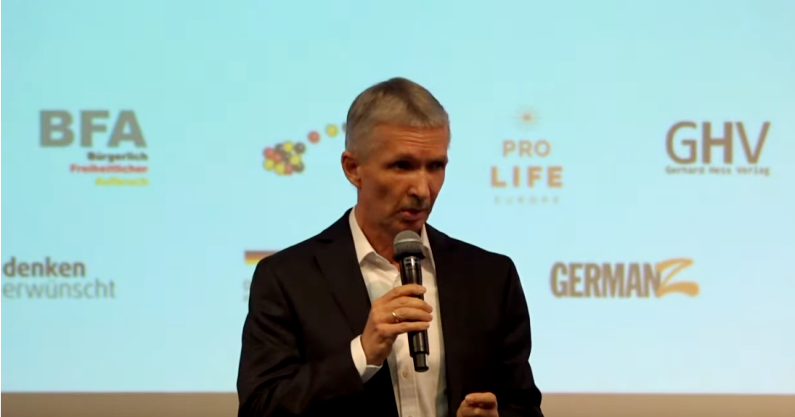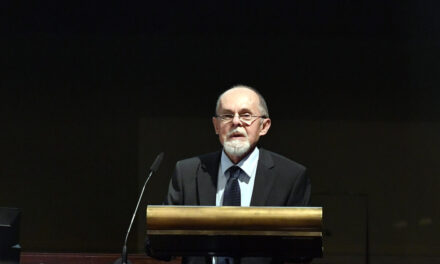Politicians and the media in Germany came as a huge surprise when the bright victory of Viktor Orbán was quickly revealed on the night of the elections. After all, in recent months, many German reports about the Hungarian election campaign seemed more like advertisements for the opposition parties. The German representatives of the SPD, the Greens, the FDP and the CDU unanimously demanded that Viktor Orbán be voted out. And then such a result!
However, anyone who has experienced the atmosphere in Hungary in recent weeks should not have been surprised by Viktor Orbán's election victory. It was felt that the government met exactly the opinion of the Hungarian voters when it dealt with the war in Ukraine: a clear commitment to the Western alliance, but at the same time it said a clear no to any attempt that would drag NATO into the war. Hungarians support sanctions against Russia, but are strictly against a comprehensive energy embargo.
Attempts by the opposition and other Western countries to slander Orbán as Putin's confidant are completely wrong. In the meantime, the Hungarians gave shelter to more than 600,000 Ukrainian refugees. They want to help, but they don't want to become a war party.
Hungarians love their country and are proud of it.
Protecting their borders from uncontrolled mass immigration from Islamic countries is as natural to them as their commitment to the classic family. The Hungarian constitution states that the mother is a woman and the father is a man. A transgender debate like the one taking place in Germany would only result in complete incomprehension in Hungary.
Hungarians are staunch Europeans, but they want to decide their own future and not be dictated to by Brussels.
It is precisely for these reasons that Hungary became the main opponent of the Western European left mainstream under the Orbán government. In the hope of replacing Orbán, the discrediting campaign launched from Brussels and numerous German media has practically known no boundaries in recent months. Blind insults, such as SPD politician Katarina Barley 's statement that Hungary is a dictatorship, are considered defamation not only by Hungarian citizens, but also by many of Hungary's friends in Germany. Mark Rutte's announcement is also unforgettable: "We want to bring Hungary to its knees!".
But the Hungarians will not be forced to their knees. This was proven again in the parliamentary elections.
Viktor Orbán won the fourth election in a row with an absolute majority. His government once again has a two-thirds majority in parliament. The Hungarians are a deeply freedom-loving people who had to fight for their own survival during the more than 1,000 years of their state's existence. The 1956 popular uprising against communist oppression is unforgettable in the country. Hungarians do not tolerate dictatorship. Those who think that their democratic vote is the result of repression and electoral manipulation have no idea, or simply do not want to know the truth for ideological reasons!
The Hungarian electoral law naturally favors the strongest party: 106 of the 199 parliamentary mandates are allocated through constituencies, only 93 on party lists. Direct and list mandates are not counted, as in Germany. But similar regulations exist in other European countries, the most extreme in Great Britain, where a purely majority voting system is in place. Is that why they are denied democratic legitimacy?
Six Hungarian opposition parties entered into an alliance for the elections so that they could run only one candidate in each constituency. This was understandable given the electoral law. What was hailed in the West as the "hope of Hungarian democracy" looked quite different from the point of view of many Hungarians: The "alliance of communists with fascists", as its leading candidate Péter Márki-Zay openly called it, aroused great suspicion.
In particular, the decisive force was clearly the post-communists Ferenc Gyurcsány . In 2006, as sitting prime minister, he admitted in a leaked internal speech that he had deliberately lied to the public in order to win the election. Since then, it has been a red flag for the vast majority of Hungarians. Everyone in Hungary knows this story. However, it was as little reported in Germany as the terrible anti-Semitic statements of Jobbik politicians on the far right of the opposition alliance.
When it comes to Orbán, the political left in Brussels and Berlin suddenly lost interest in objective reporting.
Hungary remains the bastion of federal Europe
The election of Viktor Orbán has significant consequences for the European Union: Hungary remains the bastion of a federal Europe that is committed to the diversity of its peoples and refuses to give up democratic, national self-determination in favor of one-dimensional solutions from Brussels. This is not a policy against Europe, as is always claimed, but on the contrary, it is the only way to keep Europe together politically. This conviction was massively confirmed throughout Europe by the Hungarian elections.
After all, since the Hungarian elections at the latest, it should have been clear to everyone that the peoples of Central Europe do not accept the Western European cultural imperialism that the left and left-liberal milieu wants to impose on them.
Hungarians want to raise their children the way they want and live the way they want. Other nations in Europe must see it the same way. By the way, many of us, including Germans!
Source: hungarreal.de
Author: Dr. Gerhard Papke, Deputy Speaker of the State Parliament of North Rhine-Westphalia (right), President of the German-Hungarian Society in the Federal Republic of Germany.
(Cover photo: Gerhard Papke. Source: YouTube)













